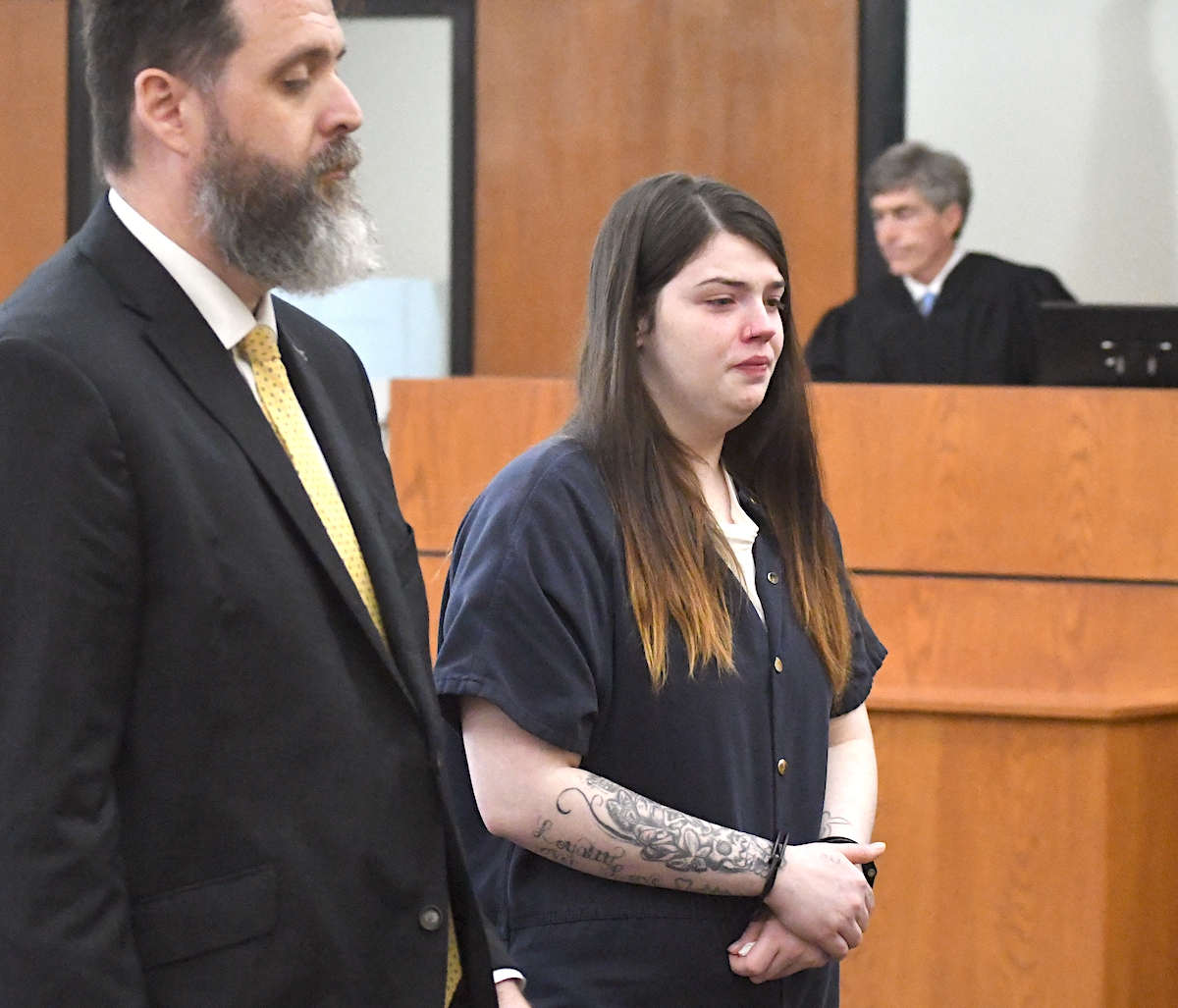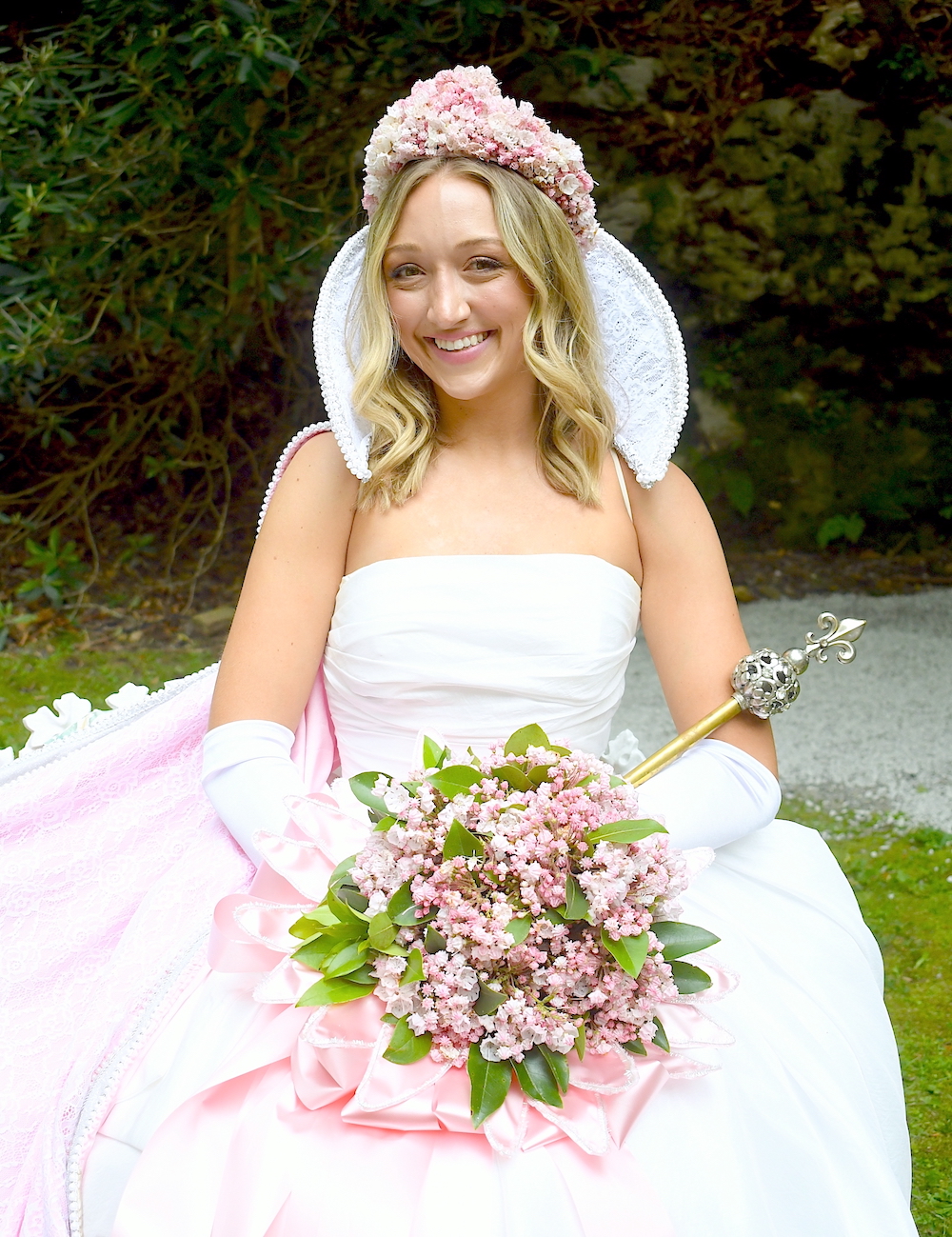United Methodist Church in Kentucky losing congregations
Published 3:26 pm Friday, June 9, 2023

- Methodist congregations have been deciding whether to remain with the United Methodist Church. The church formerly known as Seddon United Methodist in Maysville painted over part of its name. Kentucky Lantern photo by Jack Brammer
BY JACK BRAMMER
Kentucky Lantern
On a cold morning last winter, some of the 50 to 75 members of a church on Forest Avenue in Maysville used pens in their small, but beloved, house of worship for a most symbolic action.
They carefully used the sharp points to cut out the word “United” on the front of their hymn books and then colored in the empty space.
All that was left to read on the hymnals was Seddon Methodist Church.
To further highlight that Seddon was leaving the United Methodist Church, light red paint was used to obscure the word “United” on the awning over the church’s front door. It now reads “Seddon Methodist Church.” Also, a large metal cross with a flame — the symbol of the United Methodist Church — was removed from the church and its van.
Seddon, which started preaching and teaching the Bible in 1872 and joined the United Methodist Conference in 1968, is one of scores of churches in Kentucky and the nation that has disaffiliated from the United Methodist Church over a long debate about gay rights.
Last December the Kentucky Conference announced that 57 of its churches had disaffiliated. Over the last four years, 80 have left the United Methodist Church in Kentucky. About 663 with more than 150,000 members remain in the state as of early this year. Among Christian denominations in Kentucky, United Methodists trail Southern Baptists with 904,352 members and Catholics with 356,064 members.
Disaffiliation will be very much on the minds of delegates to the Kentucky Methodists’ Annual Conference that begins Sunday and runs through Wednesday at the Owensboro Convention Center.
The conference will review more church requests to exit the United Methodist Church. It is to approve them by the end of June.
In that group will be Seddon. Also, Centenary in suburban Lexington with its more than 3,700 members will be on the list. First United Methodist Church in downtown Lexington with its 1,643 members did not vote on disaffiliation and decided to stay with the United Methodist Church.
Similar scenarios are playing out across the nation. Emotions run high, especially for longtime members of churches.
“It’s a very sad time for our denomination,” said Lu-Ann Farrar, a member of Lexington’s First United Methodist Church.
Her minister, Todd Nelson, said he understands that the total of disaffiliated churches in Kentucky since 2019 will rise to about 380 once this year’s requests are approved.
“That will be about half of the United Methodist churches in Kentucky since the voting to disaffiliate began a few years ago,” he said.
“The split in the church is here,” he said. “We’re just seeing now what the count will be of those that leave and those that stay.”
Leonard Fairley, resident bishop of the Louisville Area, which includes the Kentucky Conference in the Southeastern Jurisdiction of The United Methodist Church, did not reply to numerous questions over the last four months from the Kentucky Lantern to him and his staff in their offices in Crestwood about the disaffiliation process and the reasons for it.
He first asked the Lantern to submit its questions in writing but did not respond to them though he has pledged transparency.
In his statement in a report to conference delegates in Owensboro, Fairley said, “Sisters and brothers in Christ, this is a historic Annual Conference. One that brings with it a sense of both grief and joy as we mourn the loss of our sisters and brothers to disaffiliation.
“However, we cannot and must not lose ourselves in the hopelessness of despair. We must exhibit the courage to live into the audacious promises of God that come when we love one another.”
The Rev. Taylor W. Burton Edwards, director of Ask the United Methodist Church, in Nashville, Tennessee, did provide information to the Lantern about the disaffiliation process.
How disaffiliation came about
Disaffiliation in the United Methodist Church started with a rift over LGBTQ issues that has been continuing for years. The debate on disaffiliation has taken a circuitous route.
Even though the denomination has repeatedly voted to keep its traditional stance on marriage as only between a man and a woman, conservatives complain that progressives in the denomination have repeatedly ignored the rules.
The debate reached a boiling point in 2016 after hundreds of United Methodist clergy across the nation came out as gay and when a Western regional conference elected the first openly lesbian bishop.
In 2016 at the denomination’s worldwide meeting, held every four years and known as the General Conference, a special commission was formed to review the church’s policies on sexuality.
That sparked creation of a conservative advocacy group known as the Wesleyan Covenant Association, which invited United Methodist churches to join to push for stricter policies on sexuality.
In a special session of the General Conference in 2019, delegates did not change the denomination’s position that homosexuality is incompatible with Christian teaching. But traditionalists still were not satisfied.
The Wesleyan Covenant Association said “a parting of ways is the only viable way forward.”
The General Conference signed off on a plan at the 2019 session to allow churches to disaffiliate based on views on sexuality.
Disaffiliation votes have been occurring over the last few years. They are to end this year.
The United Methodist Church has not held a General Conference since 2019 because of the COVID-19 pandemic. The next General Conference is in 2024 in Charlotte, North Carolina. In 2020, the denomination had about 6.3 million members and 30,543 churches in the United States. Worldwide, it had nearly 13 million members and 43,409 churches.
Highlights of the process
A church vote must be held within 120 days after the district superintendent calls for the church meeting. The decision to disaffiliate must be approved by a two-thirds majority of the professing members of the local church present at the vote.
The local church must pay to the United Methodist Church any unpaid apportionments for the 12 months prior to disaffiliation, as well as an additional 12 months of apportionments.
The disaffiliated church also must pay its share of the pension liability for active and retired clergy, as well as its share of medical liability for retired clergy and surviving spouses.
It’s possible for the congregation to retain much or all of its church property and assets. There have been some court cases across the nation involving disputes between disaffiliated congregations and the United Methodist Church.
Some members who disagree with their church’s vote have moved to different churches. Any United Methodist minister who wants to stay with the United Methodist Church but presides over a disaffiliated church can be transferred.
Disaffiliation is complete only when all payments due are made in full, the annual conference has approved the motion of disaffiliation and the effective date of disaffiliation set by the annual conference is reached.
A disaffiliated church
Grace on the Hill Community Church, off Cumberland Falls Highway in Corbin, was one of the first large churches in Kentucky to leave the United Methodist Church in June 2022. It has a membership of about 360.
It is now a non-denominational church. Among its beliefs spelled out on its website is that “the practice of homosexuality and cohabitation outside of marriage is not compatible with Scripture or the will of God.”
“This is a conservative church as is much of Southeastern Kentucky,” said its pastor, Scott Wilson. He said even an openly gay member of the church voted to disaffiliate. He declined to identify the person.
“We do invite everyone to come to our church and worship the Lord,” said Wilson. “We love everybody. There’s no place for hating anyone but we believe the Bible tells us how we should live.”
The official list of Kentucky churches leaving the United Methodist Church this year won’t be known until late June or so.
The Kentucky Annual Conference, at a special meeting last December, voted 332 to 29 to accept the requests of 57 churches to disaffiliate.
According to its website, Bishop Fairley told the group, “There is nothing easy about separating from the people who have shared a significant part of your life.”
He mentioned shared ministries and events, such as working side by side on mission teams for major disasters in Kentucky, a journey to the Holy Land, camping ministries, and helping the United Methodist Children’s Homes and the United Methodist retirement communities, adding that “there is so much we have done together in the name of Jesus Christ.”
“It will always be my prayer, somehow that by the power of the Holy Spirit, we can still together be about joyfully worshiping Christ, offering salvation, by offering help, healing and hospitality to all God’s children,” Fairley said.
He also said that despite the grief and sorrow, he believes that “God is up to something supernaturally amazing and mysteriously extraordinary,” and that the United Methodist Church’s best years still are ahead.
Here are the 57 departing churches, by district, in Kentucky announced last December.
More are to come.
Bluegrass: Early’s Chapel, Mortonsville, Mt. Zion (Shakertown), Perryville.
Heartland: Cedar Grove, Overdale.
Kentucky East: Belfry, Buchanan Chapel, Cannonsburg Trinity, Catlettsburg, East Fork, Hardy, Olive Hill, Tollesboro.
Lexington: Bybee, Gunns Chapel, Herrington, Preachersville, Ruddles Mill, Shiloh.
Northern Kentucky: Fosters Chapel, Goddards Chapel, Melbourne, Milton, Morningview, Owenton, Piqua, Shiloh.
Owensboro: Big Springs Corners, Fairview.
Pennyrile: Bethel, Dixie, McMurray Chapel, Stuart Chapel.
South Central: Barnetts Creek, Boyds Creek, Campground, Center, Christies Chapel, Coffeys Chapel, Cosby, French Valley, McKendree Chapel, New Bethel, Old Zion, Park, Russell Springs, Shiloh, Walkers Chapel.
South East: Corbin Trinity, Fellowship, Macedonia, Pleasant View, Science Hill, Twin Branch, Whitesburg, Williamsburg First.






